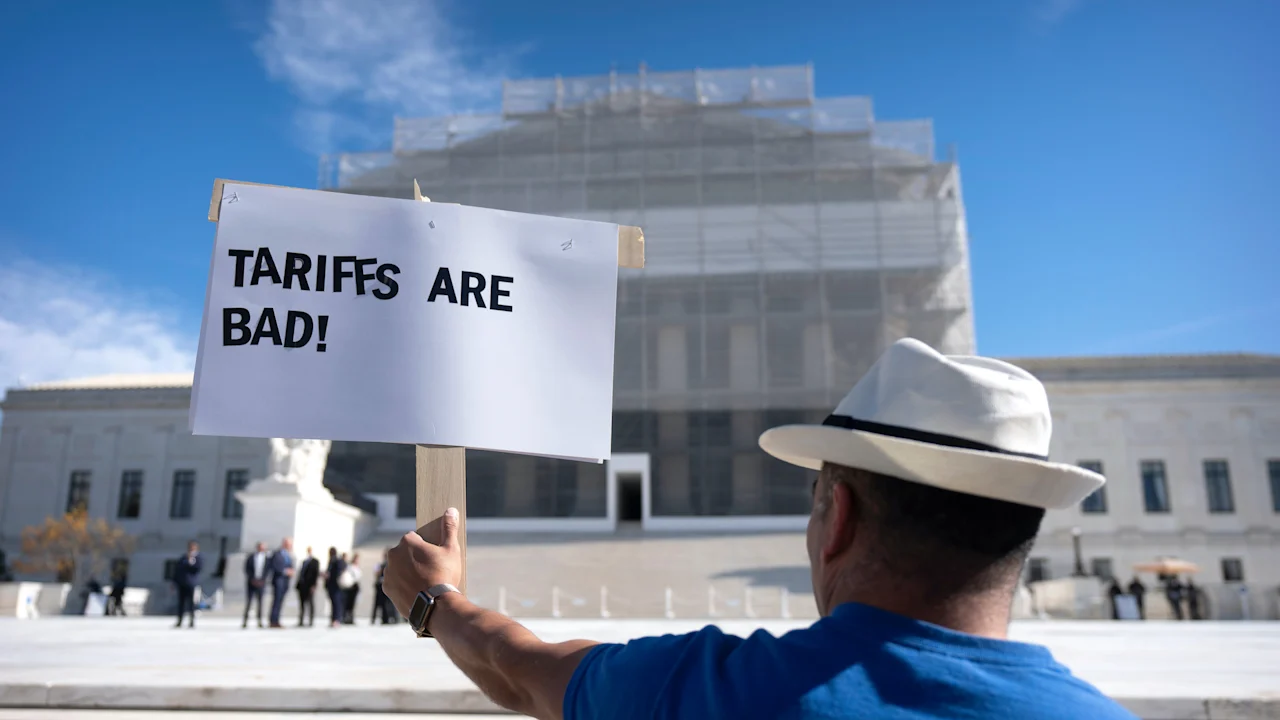
Major Action Conservatives were skeptical Tuesday that President Donald Trump had the power to unilaterally block risky tariffs from a key part of his agenda in the biggest legal test of his unprecedented presidency.
Republican leadership is trying to defend the tariffs on Trump’s economic agenda after lower courts ruled the emergency relief law does not provide immediate power to set or change duties on imports.
The Constitution says that Congress has the power to levy tariffs. But the Trump administration has argued that in emergency situations the president can regulate imports and include tariffs.
Justice Amy Coney Barrett grilled the government on this point. “Has there been another instance in which no statute can give force of this language?” he asked.
Justice Neil Gorsuch also questioned whether Trump’s position would give the president more congressional power. “Is the constitutional purpose of the taxing power, the power to reach into Congress, into the pockets of the American people, simply different?” he asked. “Has it changed since it was founded?”
Questions from Chief Justice John Roberts also suggested he couldn’t be sure. With the court’s three liberal-leaning justices looking deeply suspicious, opponents of the tariffs could win by swiping two conservatives.
A decision in a case can take weeks or months.
Trump called it one of the most important in the country’s history and said it would be disastrous for the economy.
Challengers of the 1977 Emergency Powers Act don’t even remember Trump’s tariffs and haven’t used it to apply to them before. A collection of small businesses say the uncertainty is driving them to the brink of bankruptcy.
The case centers on two sets of tariffs. It came with imports from Canada, China and Mexico after Trump declared a national emergency over the drug trade in February. The second involves a sweep of “reciprocal” tariffs in most of Trump’s countries in April.
Multiple lawsuits have been filed over the tariffs, and the Court is hearing suits from Democratic-leaning states and small businesses focused on everything from plumbing supplies to women’s cycling apparel.
Lower courts have struck down most of Trump’s tariffs as an illegal use of emergency power, but the nation’s highest court may see it differently.
Trump named three of the nine justices in his first term to the conservative majority court. Courts have so far been unwilling to check executive power flexion, winning a series of victories in the court’s emergency docket.
Again, these have received short-term orders — Trump’s broad conservative agenda, the full conservative agenda before the nation’s highest court. That means the outcome could set the tone for a broader legal push against his policies.
Courts have previously been skeptical of executive power claims, such as President Joe Biden’s attempt to donate $400 billion under a different law related to national emergencies. The Supreme Court has not clarified the law’s power to impose a program that has a major economic impact on it, a legal principle known as the big questions doctrine.
Challengers say Trump’s tariffs should get the same treatment because they will have an even bigger economic impact, increasing by nearly $3 trillion over the next decade. The government, on the other hand, says that because tariffs are different, a large part of its approach to foreign affairs is an area for the courts to avoid second-guessing the president.
Challengers try to channel the skepticism of fairness, which raises doubts that other parts of the Constitution use powers reserved for Congress, a concept known as the nondelegation doctrine. Trump’s interpretation of the law would almost certainly impose a tax that is “adjustable.”
The Department of Justice, whose legal principle is the president, is not for state institutions, but for state institutions.
If he ultimately loses at the high court, Trump can impose tariffs under other laws, but there are more limits on the speed and severity with which he can act. The government could file a post-judgment judgment against him when he is due back for tariffs that have raised $195 billion in revenue since September.
The Trump administration won over four Court of Appeals judges who found the 1977 International Emergency Powers Act, or IEEPERA, allows presidential authorities to regulate imports without express restrictions on imports during emergencies. In recent decades, Congress has ceded a number of tariff powers to the president, and Trump has made the most of the power vacuum.
Lindsay Whitehurst, Associated Press
